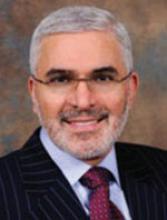What part of the brain incorporates our moment-to-moment experiences, weaves them into coherent and interconnected verbal, spatial, and emotional memories, and enables us to be aware of our entire ‘life story’?
It’s the hippocampus, of course. Damage to this portion of the brain—as in seriously mentally ill individuals—severely impairs the ability to form new memories, with subsequent social and vocational impairment.
Interestingly, the hippocampus also is the “regeneration center” of the brain, continuously producing progenitor cells that can differentiate into neurons and glia that migrate to brain regions that need replenishment.
What does that have to do with psychiatry? A lot. It is now well established that the hippocampus is structurally and functionally impaired in several severe neuropsychiatric disorders. The hippocampus:
- fails to develop adequately in schizophrenia
- shows progressive atrophy in persons with recurrent unipolar or bipolar depression
- shrivels in severe stress disorders such as posttraumatic stress disorder (PTSD)
- is damaged by the toxicity of alcohol addiction
- is rapidly devastated in Alzheimer’s dementia.
It’s no wonder that cognitive functions—especially memory and learning—are seriously impaired in persons suffering from these disorders.
Regeneration and repair
What can psychiatrists do about our patients’ hippocampal dysfunction? There is good news on that front.
Abstinence from alcohol will reverse hippocampal damage within 6 to 12 months. Antidepressants have been found to stimulate production of new brain cells (neurogenesis) and to gradually rebuild the structure of the hippocampus in depressed individuals. Ditto for atypical (but not conventional) antipsychotics, which induce neurotrophic growth factors such as nerve growth factor (NGF) and brain-derived neurotrophic factor (BDNF). NGF and BDNF facilitate survival and maturation of new neurons produced in the hippocampus. Some atypicals have been shown to prevent or reverse stress-induced suppression of neurogenesis in the hippocampus and, theoretically, prevent PTSD.
Recent studies demonstrate that antidepressants lose their clinical efficacy if neurogenesis is inhibited. This suggests that hippocampal neurogenesis—rather than neurotransmitters—may be the mechanism by which depression is lifted. Only dementia still defies efforts to halt its ruthless destruction of the hippocampus, with severe cognitive decline and a faded sense of self and the world.
Flexing the memory center
Besides medication, other practical tools can keep the hippocampus healthy (prevention) or restore its health (intervention), whether in psychiatric patients or in mentally healthy but aging individuals. These include:
- physical exercise, which stimulates neurogenesis
- stress management to reduce the neurotoxic effects of cortisol on the hippocampus
- mental exercises—such as memorizing a poem or a list of words or numbers, reading, writing, or retrieving vocabulary—all activate the hippocampus
- deep breathing several times a day to oxygenate the brain adequately (the hippocampus is the most vascularized brain region and the first to suffer from low oxygen).
We clinicians also should keep our hippocampi healthy through prevention and intervention so we can take good care of our patients.


